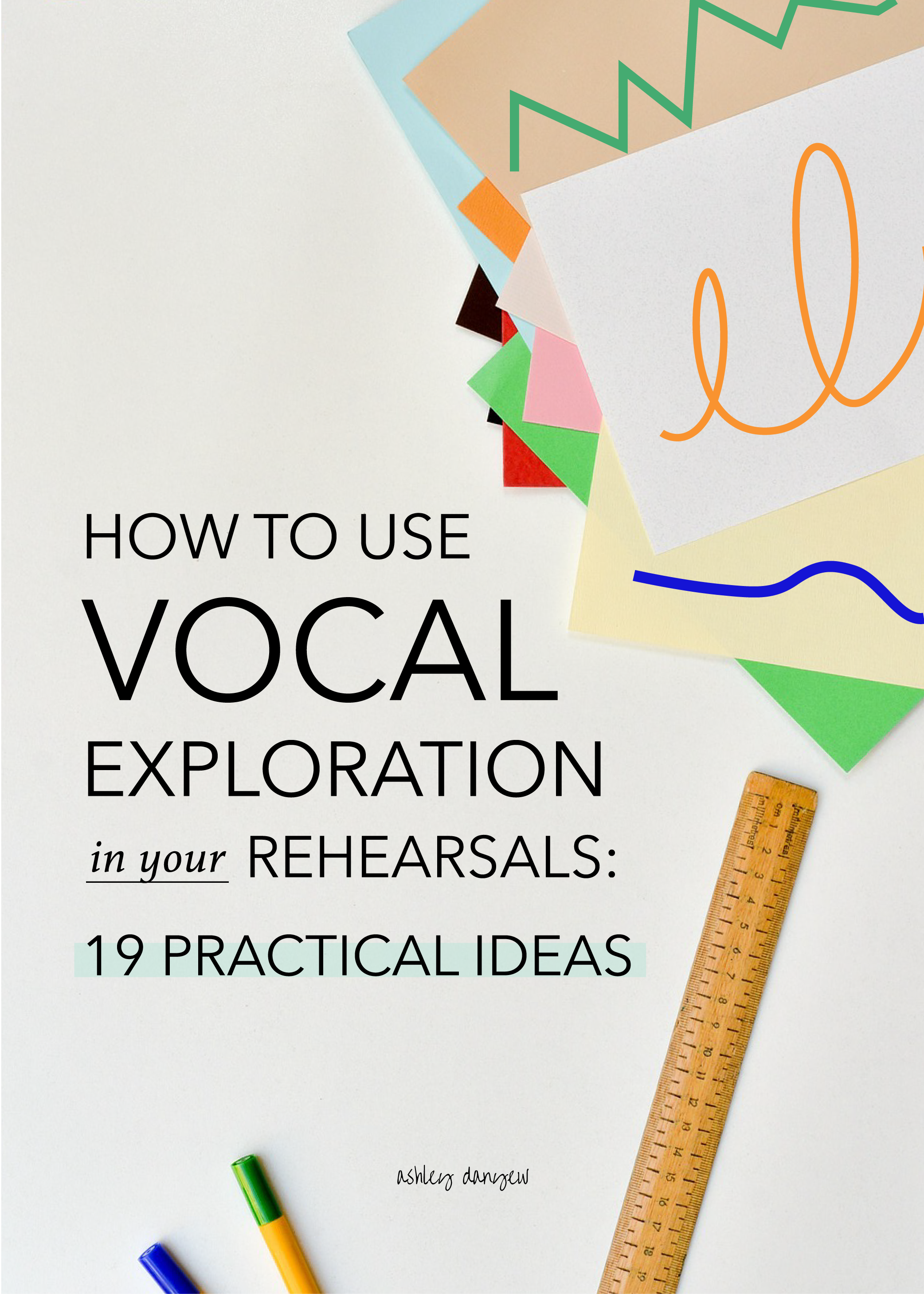Vocal exploration, or time spent exploring what the voice can do is a vital part of early childhood and elementary music-making. Invite your singers to experience what their voice can do and experiment with different types of sounds.
As you plan your choir rehearsals, look for new and creative ways for children to explore what their voices can do.
Spend a few minutes each week reviewing the four voices: speaking, singing, whispering, shouting. Then, take some time to create vocal sound effects that span the entire vocal range. This helps them build coordination and develop control of their voice, learn about their voice and what it means to sing, and build personal confidence.

















